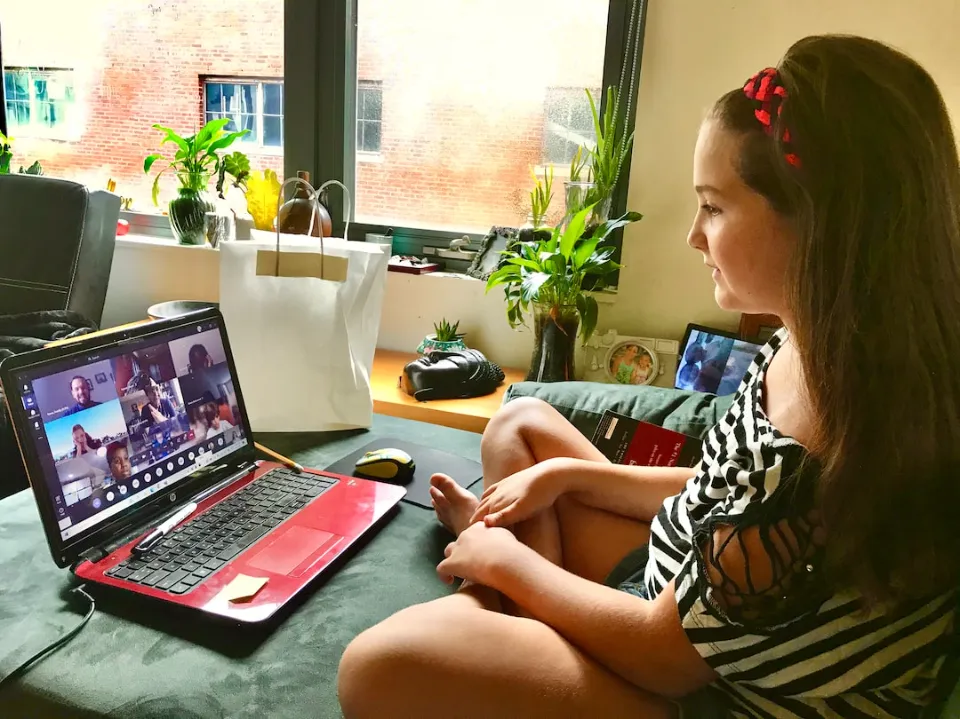
Can I Homeschool Someone Else’s Child? Should You Do That?
Have you ever been asked to homeschool a child for someone else? This blog provides information on how to privately homeschool someone else’s child.
Millions of parents homeschool their kids. If you’re one of them, you might be wondering if you can also homeschool a child who belongs to someone else. Furthermore, depending on where you live, the response to that query might vary.
Here are some state homeschool laws and what they say about instructing other people’s children.
Can I Homeschool Someone Else’s Child?
Whether you can teach someone elses’ child depends on the local laws, but you should think twice before accepting the job. Homeschooling is a huge responsibility and should be taken seriously.
Due to unsatisfactory results, many parents chose to sue the person who homeschooled their child. To avoid misunderstandings, you should create a rock-solid contract with the parents listing the following:
- Your teaching experience
- The methods you are going to use
- The way you’ll report the child’s progress to the parents
- A clear statement that the parents can end the arrangement at any point if they are dissatisfied
- A clause stating they may not sue you for any reason other than criminal behavior
Should You Homeschool Someone Else’s Child?

Short answer: Probably not. It’s okay if you decide to try it anyway. If you choose to do this, make sure your state permits it and that you are adhering to its requirements.
If it does, I believe the most crucial thing to do is to ensure that you and the other person share the same objectives and expectations and are working together to meet them.
Here are some starter questions to ask yourself and the child’s parent:
- This year, semester, quarter, or trimester, what do they hope their child will learn?
- What topics would they be willing to omit?
- What level of work or effort are they (the parents) anticipating?
- What are the parents (the children’s) plans for the upcoming month, week, week, month, or year? What sorts of tasks must you complete for them before they can move forward?
- What time would you like to begin each day?
- When do you want to finish each day?
- If they’re staying overnight or just arriving in the morning and leaving at the end, how long will they be at your house?
- Do you have any curriculum that they must buy?
- Are there any costs you’ll have to pay back to them?
- Do they want you to teach them alongside your kids, or do they have a different lesson plan? (Are you comfortable using various curricula when you’re teaching?)
- What rewards are effective for their kids?
- In the event that their child is being disruptive, how do they want you to handle it?
- How do you want to respond to resistance or speaking out? (If I made my daughter do something she didn’t want to do, she would scream and throw herself to the ground, and my niece would huddle in her seat if she didn’t know the answer.)
- A co-op is something you intend to join. Would they also want to participate in that?
- the fundamentals of allergies or things that might harm them suddenly.
Further Reading:
- How to Become a Certified Homeschool Teacher?
- When is Homeschooling the Right Choice for You and Your Child?
- Is Homeschooling Hard?
State Statutes on Homeschooling Someone Else’s Child
It’s legal to homeschool your own children in states like Alabama and Alaska without submitting any paperwork. Alabama does require private tutors to be certified, teach for at least three hours per day for 140 days per year, and submit a report to the appropriate authorities outlining the subjects and times of instruction.

California has quite a few options for homeschooling, but you must first qualify as a private school and prove you are “capable of teaching.” Delaware also provides three homeschooling options: single-family homeschool, multiple-family homeschool, and single-family homeschool coordinated with the regional school district.
Parents are not required in Florida or Pennsylvania to hold a teaching certification, but tutors must.
Additionally, if a homeschool is run by a parent or legal guardian, Florida permits multiple homeschools to operate as private schools and mandates that students be tested or evaluated every year.
In contrast, Iowa mandates annual assessments for kids under eight years old who are not under the supervision of a certified teacher.
Other states that permit home-based private schools include Illinois, Louisiana, Nebraska, and Texas. Maine, where teacher qualifications must be approved by the state, agrees. In Virginia, homeschooling families are permitted to form groups and operate private schools.
Unless the instructor is certified, homeschooling is only permitted in Tennessee and Michigan by parents or legal guardians. Minnesota has very strict homeschooling laws that only allow parents who are certified, have a bachelor’s degree, or are working under the guidance of an instructor with the appropriate credentials to teach.
Similar to North Carolina, South Carolina, and North Dakota, South Carolina allows parents to join homeschool associations while North Dakota requires homeschooling parents to be certified or to have a high school diploma or GED.
Conclusion: Homeschool Someone Else’s Child
In order to instruct the children of another family, as I mentioned above, you do not need to be a certified teacher. If you are a Pennsylvania-licensed teacher, it makes sense to apply to work as a private tutor for your own kids or the kids of another family.
As parents and kids work through difficult situations together, unintended and even unwelcome homeschooling has occasionally brought about unexpected benefits for families. Sometimes you may believe that your job prevents you from homeschooling, but further research may reveal that others have successfully done so.
FAQs
Can Someone Else Homeschool My Child UK?
Either parent can homeschool a child without the other parent’s consent as long as their name is on the child’s birth certificate. But this could be contested in court.
Can I Homeschool Someone Else’s Child in Michigan?
The law states that parents and guardians have the right to educate their children at home. Therefore, even though you might choose to hire a tutor, join a co-op, or sign your kid up for online classes, the onus ultimately rests on you, the parent.
Can I Homeschool Someone Else’s Child in Georgia?
The only kids you can teach at home are your own. To hire a tutor for homeschooling is permitted in Georgia, though. So, yes, in the case of tutoring, you can homeschool someone else’s child, but the parent retains legal responsibility for abiding by all regulations.
Is Homeschooling Monitored in the UK?
Local authorities have no formal powers or duty to monitor the provision of home education. However, they do have obligations to spot kids who aren’t getting a good education and take action.


